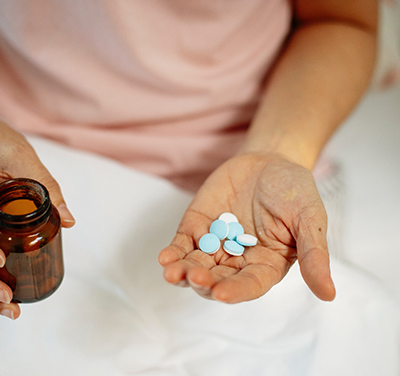Every year, one out of every four deaths in the United States are due to cardiovascular disease. Although many medical and surgical interventions are available to treat heart and blood vessel problems, the experts in the field constantly design better treatment options. The team at New Hope Clinical Research work closely with today’s innovators, conducting the clinical trials necessary to provide safe and effective new treatments for cardiovascular disease. If you have questions about enrolling in clinical trials, call the clinic in Charlotte, North Carolina, or book an appointment online.
New Hope Clinical Research
Research Clinic located in Charlotte, NC

Cardiovascular Diseases Q & A
What are the most common types of cardiovascular disease?
Cardiovascular disease includes a large group of health conditions that affect your heart and blood vessels.
High blood pressure, or hypertension, is one of the most common conditions. These are a few examples of other cardiovascular conditions frequently diagnosed:
- Blood vessel disease: coronary artery disease, hypertension, and peripheral vascular disease,
- Arrhythmia: irregular heart rhythm such as atrial fibrillation
- Heart valve disease: valvular stenosis (narrow valve openings) and damaged heart valves
- Cardiomyopathy: damaged heart muscles due to disease or infection
- Myocarditis: inflamed heart muscle most often due to a virus
Peripheral vascular disease includes conditions such as aortic aneurysms, deep vein thrombosis, and phlebitis.
What is atherosclerosis?
Atherosclerosis, a type of peripheral vascular disease, develops over time as your arteries become narrow and hardened due to the plaque.
Plaque first begins when high blood pressure damages an artery wall. This damage creates a spot where cholesterol gets stuck and accumulates.
As the cholesterol builds up, inflammation develops, and other substances like calcium join the mix, which makes it harden into a plaque.
Eventually, plaque can block blood flow through the artery. A piece of the plaque could break off and travel to your heart, brain, or lungs, causing serious problems like a heart attack, stroke, or pulmonary embolism.
What symptoms will I have due to atherosclerosis?
Atherosclerosis quietly develops in your body without causing symptoms until blood flow is affected or a piece of plaque breaks away.
You’ll experience different symptoms depending on the plaque’s location:
- Coronary arteries (supply to your heart): shortness of breath, irregular heartbeat, fatigue, chest pain that gets worse when you’re active
- Carotid arteries (delivers blood to your brain): weakness, difficulty speaking, dizziness, numbness on one side of your face or body
- Renal arteries (take blood to your kidneys): changes in urination, swelling in your hands or feet
- Pulmonary artery (takes blood to your lungs): chest pain, shortness of breath, cough
When atherosclerosis develops in your legs, you’ll have symptoms such as redness, swelling, and pain in your leg when active.
What is the role of clinical trials in cardiovascular disease?
Clinical trials are conducted before a new medication, cardiovascular procedure, or medical device can be released on the market and used by doctors.
Before the study can begin, every aspect of a clinical trial is developed by experienced researchers, followed by approval by the US Food and Drug Administration. Then, patients who have the health condition and meet the criteria are recruited to participate.
When you engage in a clinical trial, you receive free testing and possibly other benefits, but it depends on what’s being studied.
For some patients, a clinical trial is their chance to receive an experimental procedure that could help their cardiovascular condition.
Everyone who participates in these trials paves the way for future treatments that may prevent cardiovascular disease or save a life.
The experienced team at New Hope Clinical Research continuously conducts new clinical trials for cardiovascular diseases. To learn more about their current or future studies, call or book an appointment online.








